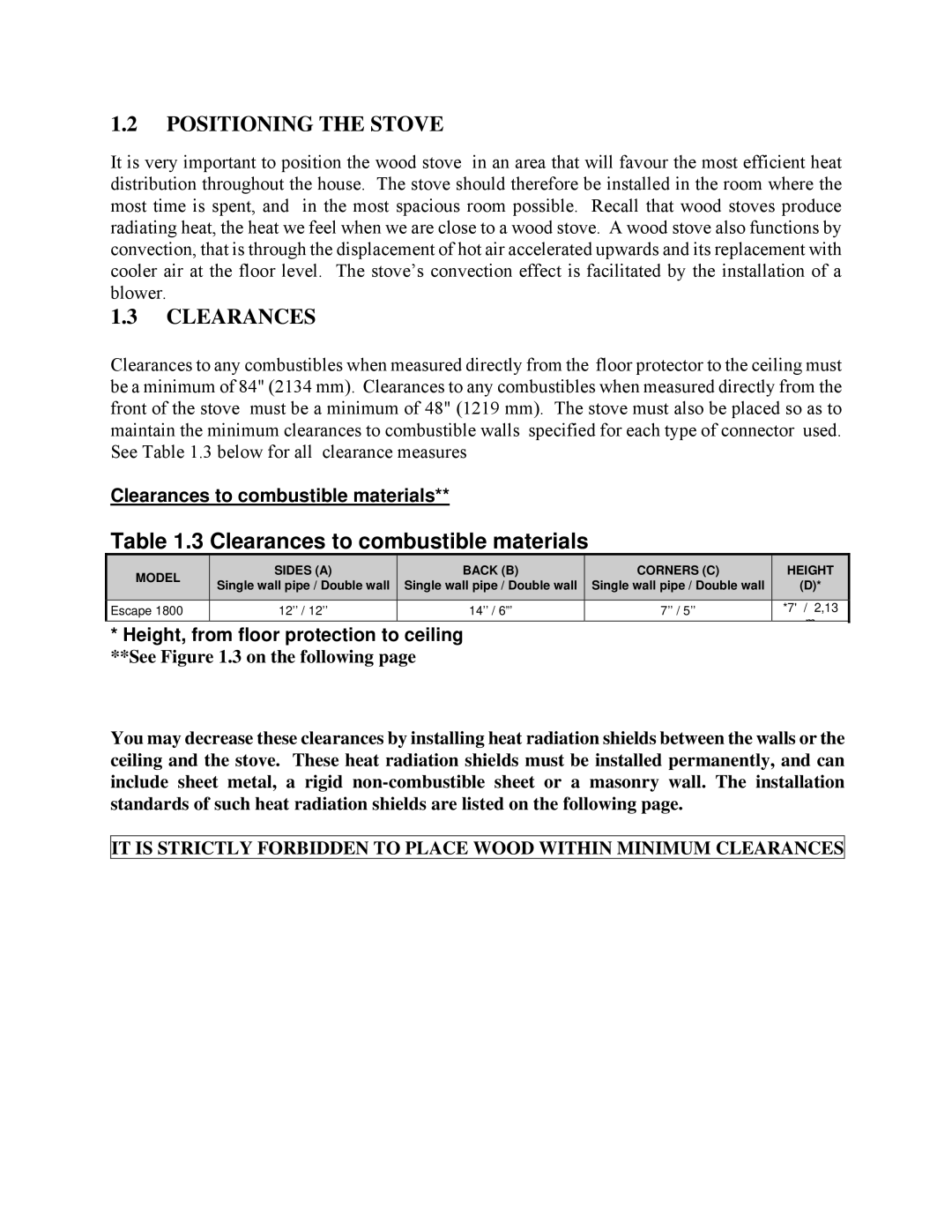
1.2POSITIONING THE STOVE
It is very important to position the wood stove in an area that will favour the most efficient heat distribution throughout the house. The stove should therefore be installed in the room where the most time is spent, and in the most spacious room possible. Recall that wood stoves produce radiating heat, the heat we feel when we are close to a wood stove. A wood stove also functions by convection, that is through the displacement of hot air accelerated upwards and its replacement with cooler air at the floor level. The stove’s convection effect is facilitated by the installation of a blower.
1.3CLEARANCES
Clearances to any combustibles when measured directly from the floor protector to the ceiling must be a minimum of 84" (2134 mm). Clearances to any combustibles when measured directly from the front of the stove must be a minimum of 48" (1219 mm). The stove must also be placed so as to maintain the minimum clearances to combustible walls specified for each type of connector used. See Table 1.3 below for all clearance measures
Clearances to combustible materials**
Table 1.3 Clearances to combustible materials
| MODEL |
| SIDES (A) |
| BACK (B) |
|
| Single wall pipe / Double wall |
| Single wall pipe / Double wall | |
|
|
|
| ||
|
|
|
|
|
|
| Escape 1800 |
| 12’’ / 12’’ |
| 14’’ / 6”’ |
|
|
|
|
|
|
*Height, from floor protection to ceiling
**See Figure 1.3 on the following page
CORNERS (C)
Single wall pipe / Double wall
7’’ / 5’’
HEIGHT
(D)*
*7' / 2,13
m
You may decrease these clearances by installing heat radiation shields between the walls or the ceiling and the stove. These heat radiation shields must be installed permanently, and can include sheet metal, a rigid
IT IS STRICTLY FORBIDDEN TO PLACE WOOD WITHIN MINIMUM CLEARANCES
